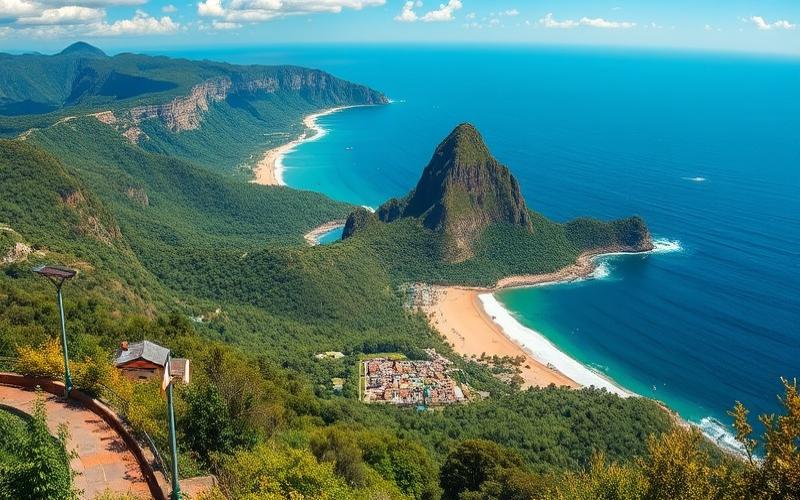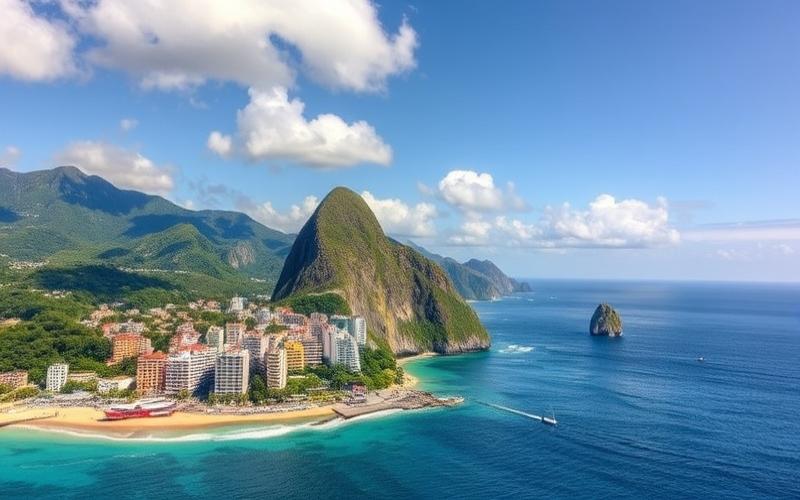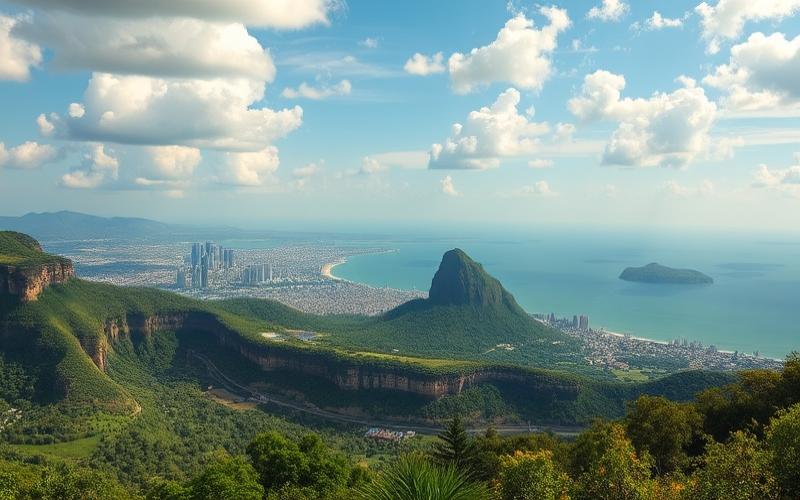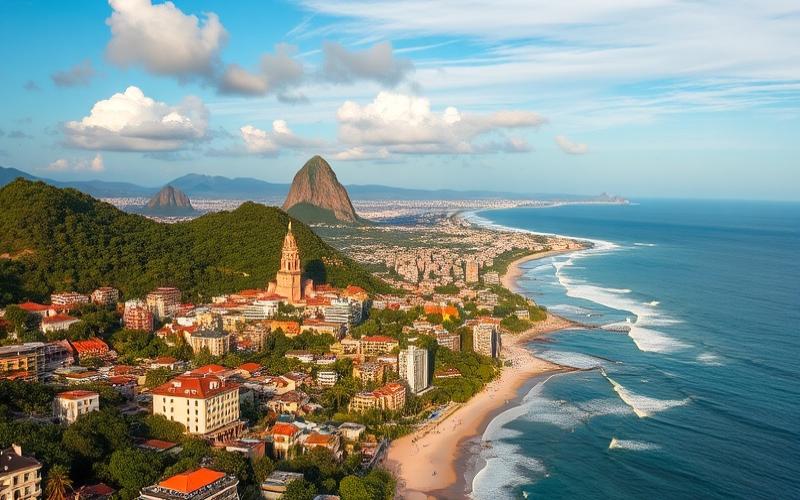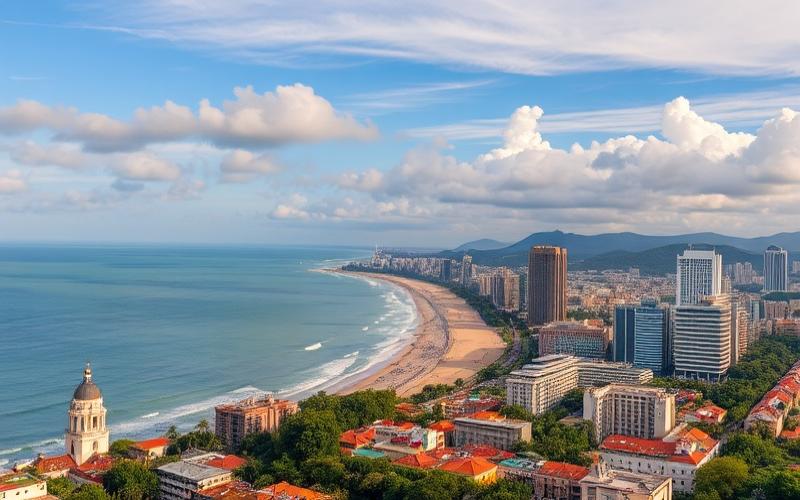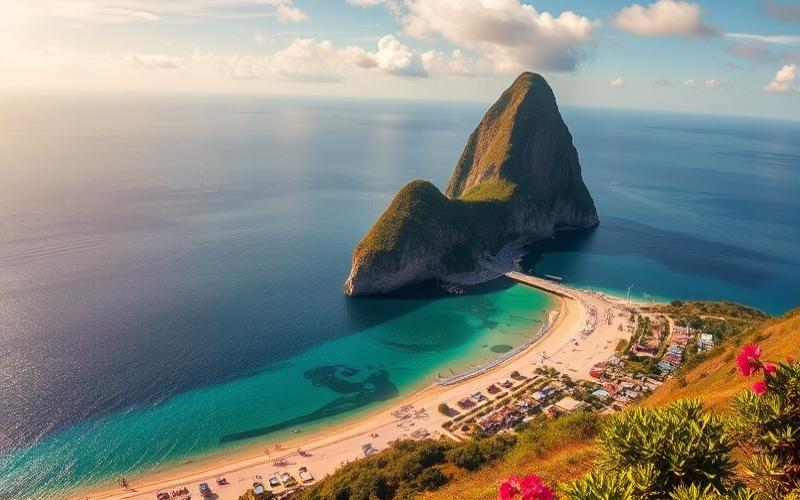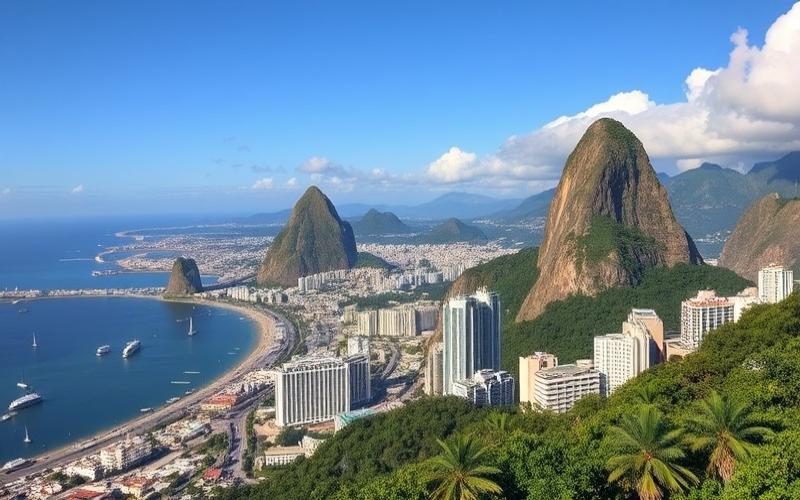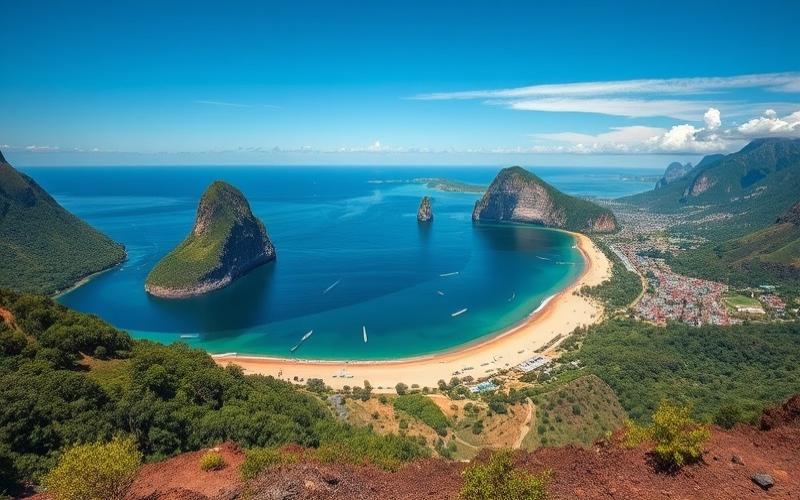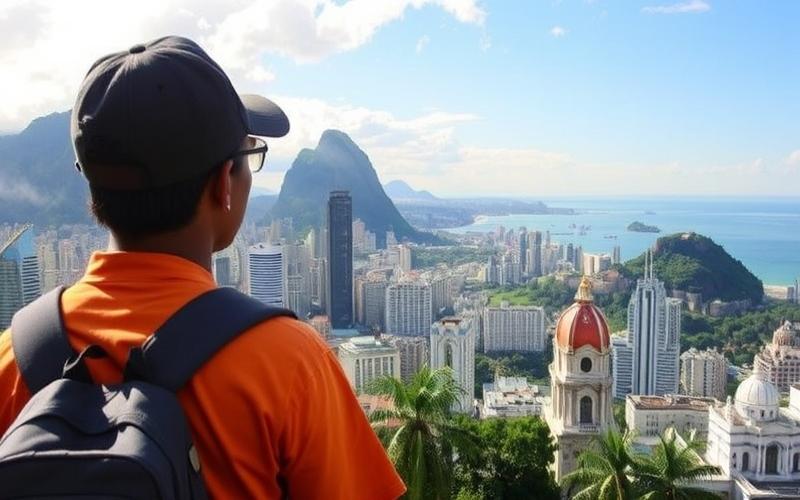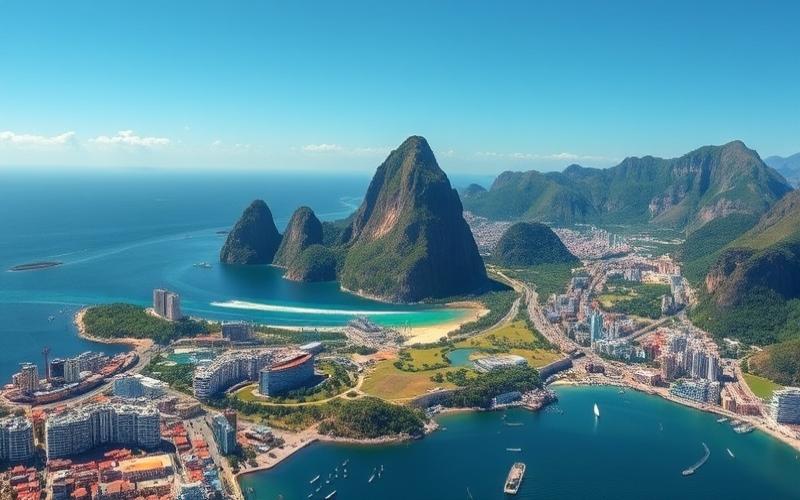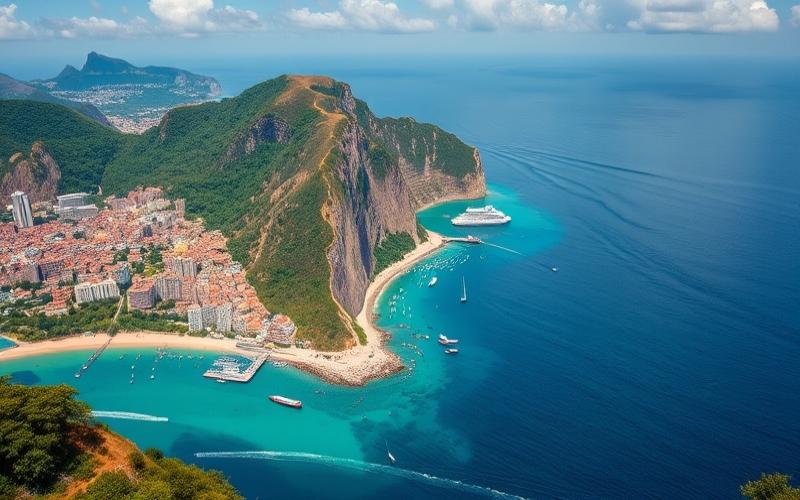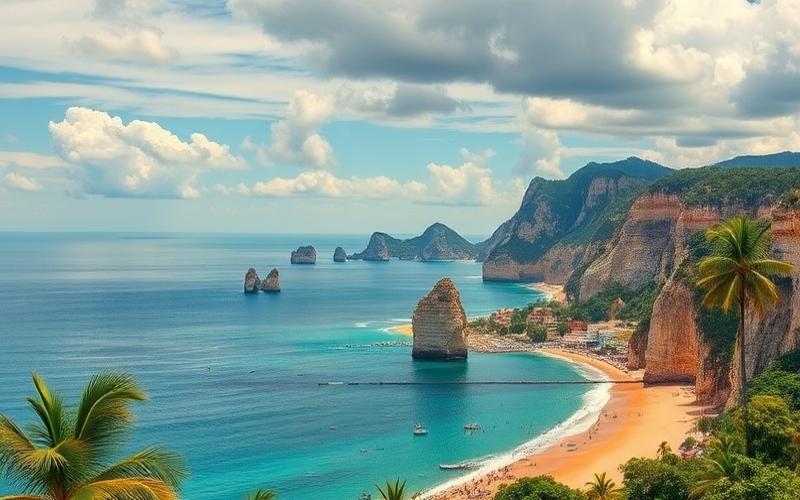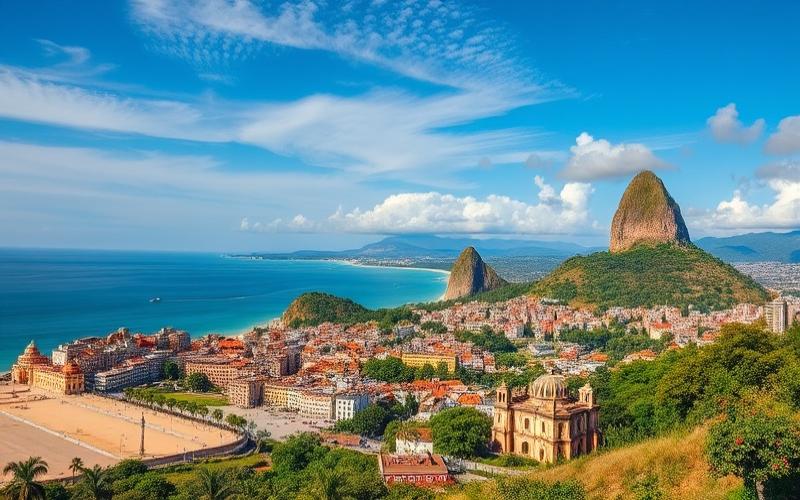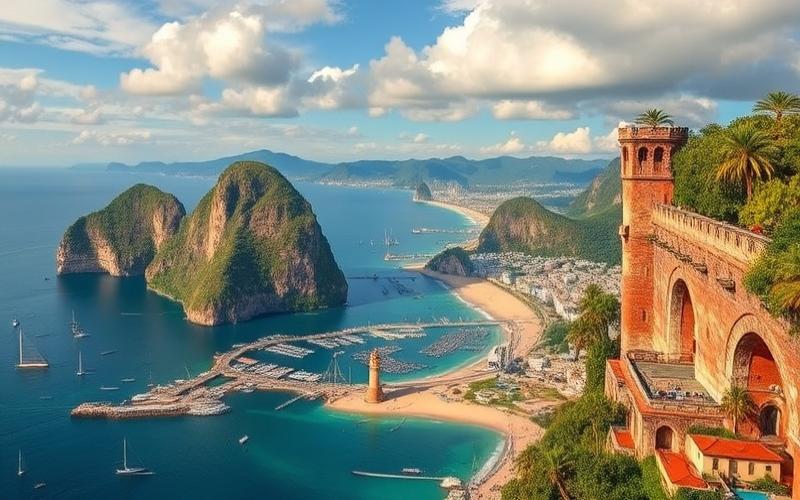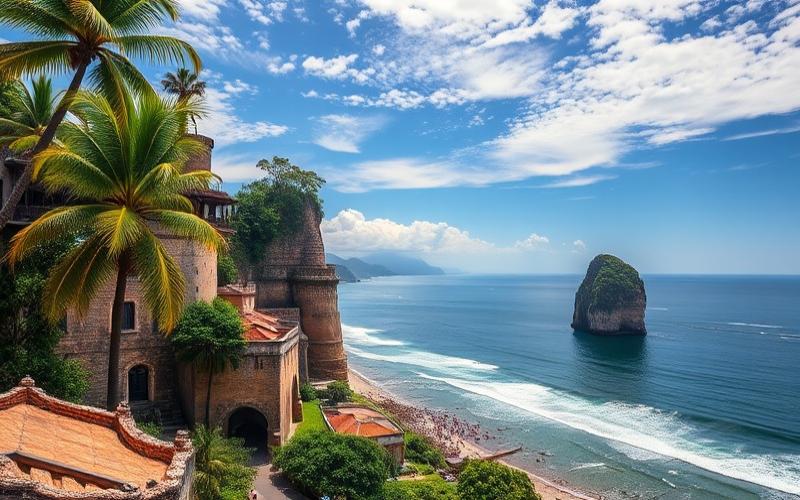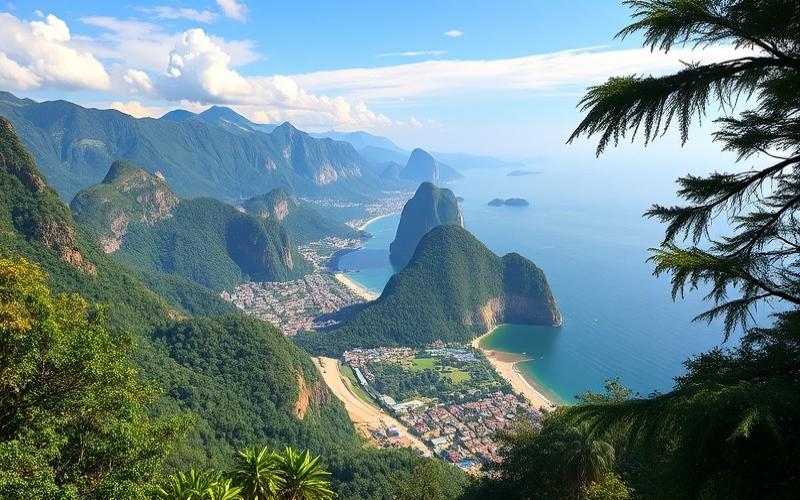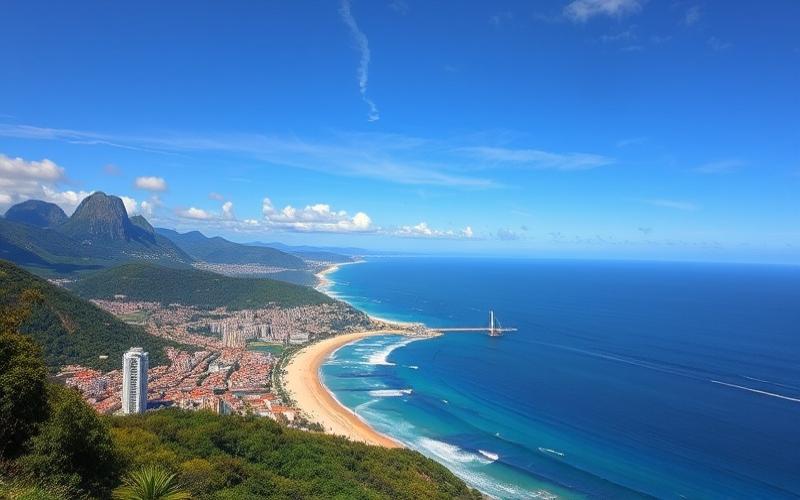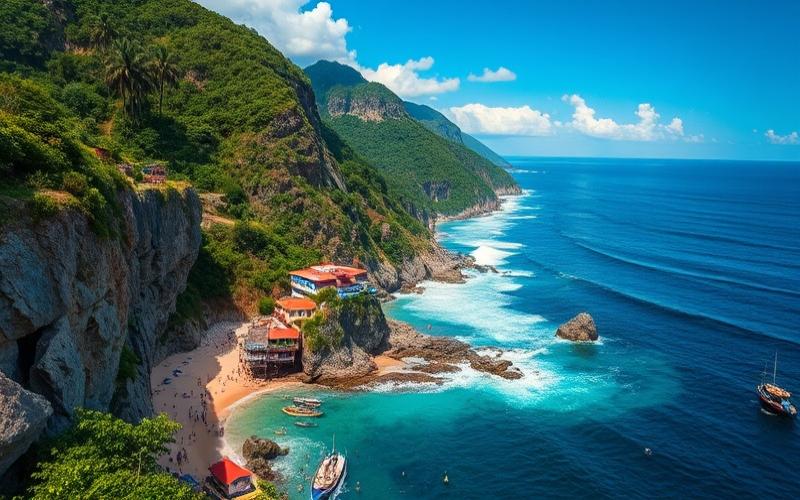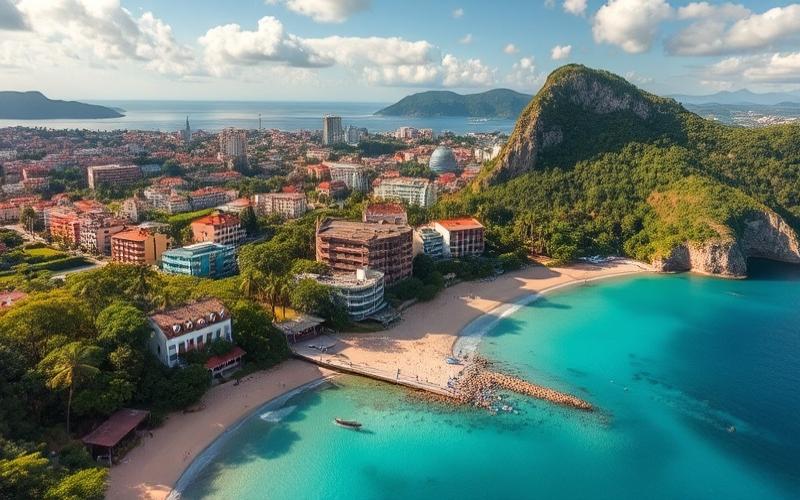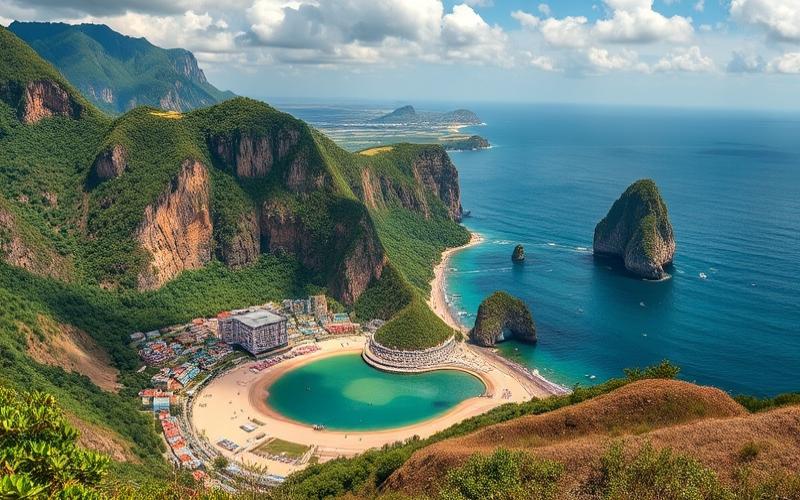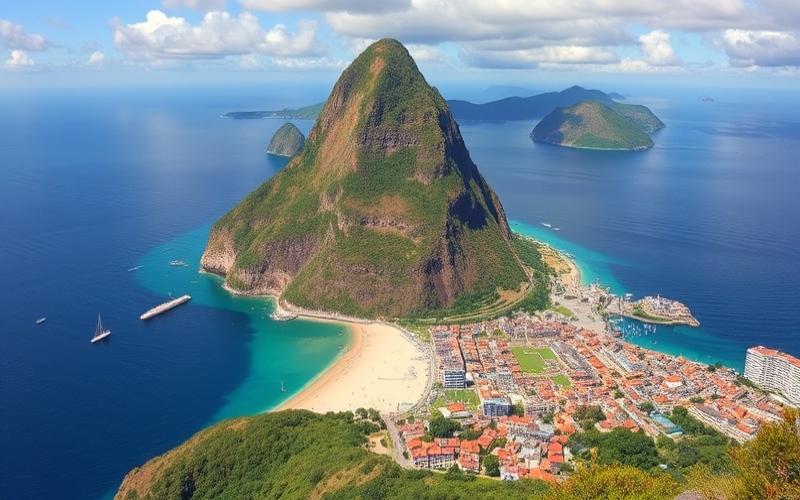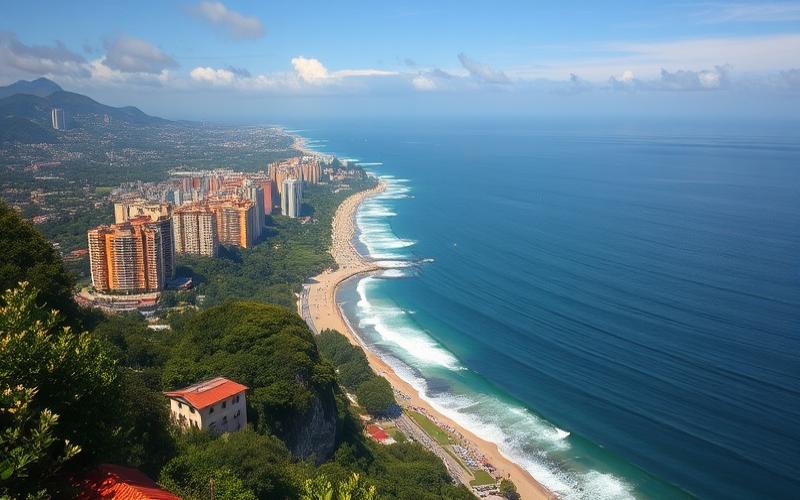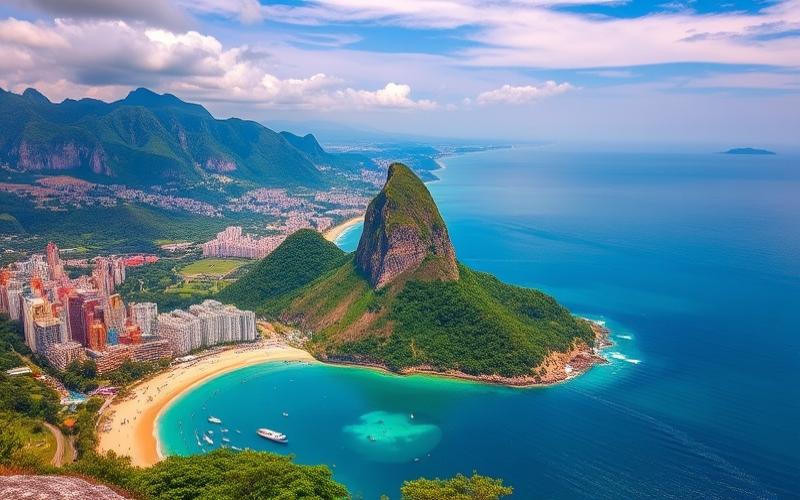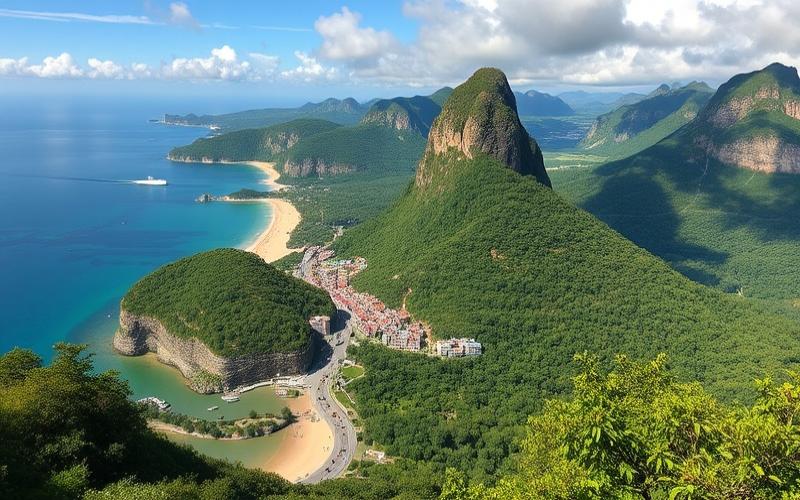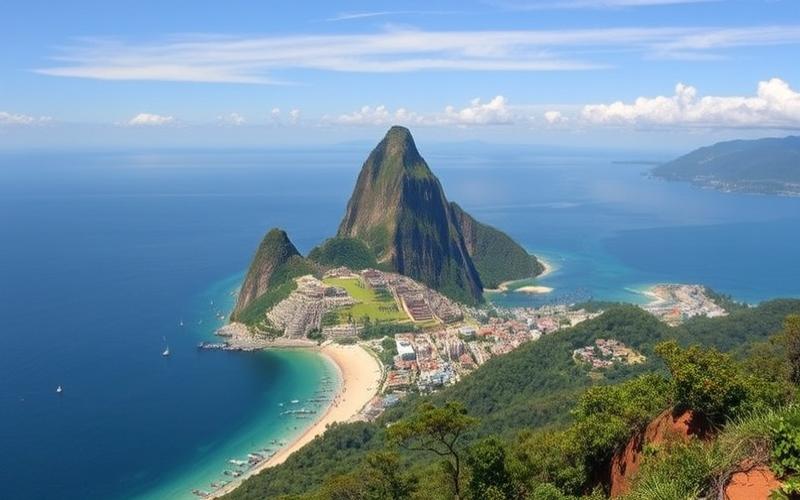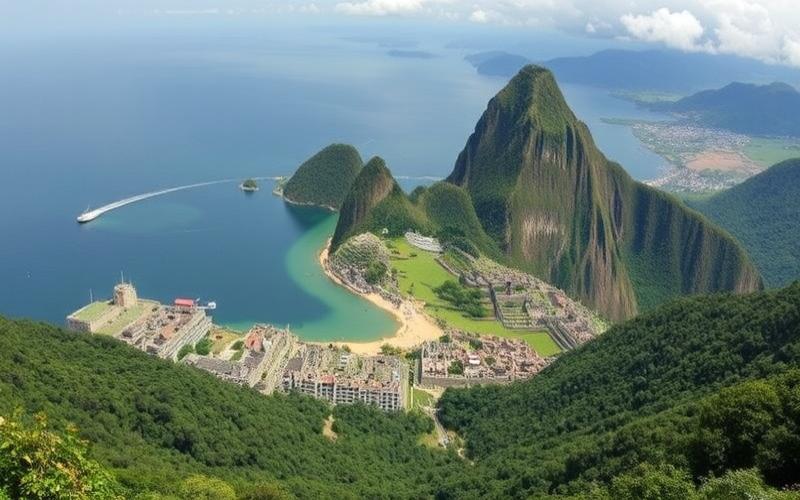
 Published on and written by Cyril Jarnias
Published on and written by Cyril Jarnias
In Brazil, a land of contrasts and diversity, religious life is characterized by a profusion of beliefs and practices. From the majestic cathedrals of Rio de Janeiro to the Afro-Brazilian sanctuaries of Salvador, and the multiplying evangelical temples in São Paulo, each place of worship tells a unique story.
The Brazilian religious community, infused with European, African, and indigenous influences, reflects an incredible syncretism where Roman Catholicism, Afro-Brazilian religions like Candomblé, and the fervent expression of rapidly expanding evangelical movements coexist.
While predominantly Catholic, Brazil is nevertheless the stage for a rapid evolution of its spiritual landscape, generating fascinating dynamics within its religious communities.
Religion in Brazil: A General Overview
Religion holds a central place in Brazilian culture, influencing many aspects of daily life: national holidays, family rituals, attitudes towards death, illness, or success, and the organization of the calendar around major religious celebrations. Processions, pilgrimages, Carnival (of Catholic origin), neighborhood worship services, and the presence of religious objects in public spaces attest to this importance.
Historical Overview of Religious Evolution in Brazil:
- Arrival of Catholicism in the 16th century with Portuguese colonization, accompanied by the forced conversion of indigenous populations and the assimilation of African slaves.
- Religious syncretism: Indigenous and African beliefs blended with Christianity, giving rise to hybrid cults like Candomblé and Umbanda.
- Abolition of slavery (1888), separation of Church and State (1889), followed by a gradual diversification of the religious landscape, notably from the 20th century onwards with the growth of Evangelical Protestantism and Spiritism.
- In recent decades, an increase in the number of people declaring no religious affiliation.
Main Religions Practiced in Brazil:
| Religion | Percentage of Population (2022) | Main Characteristics |
|---|---|---|
| Catholicism | 56.75% | Colonial heritage, national holidays, syncretism with African beliefs |
| Protestantism (Evangelical) | 26.85% | Rapid growth, diversity of churches, strong presence in suburban areas |
| No Religion | 9.28% | Recent growth, especially in large cities |
| Spiritism | 2 to 3% | Influence of Allan Kardec, belief in reincarnation, mediumship practices |
| Candomblé and Umbanda | 1.05% | Afro-Brazilian religions, syncretism, worship of orixás and spirits |
| Others (Judaism, Buddhism, etc.) | Less than 1% | Diverse communities present mainly in major urban centers |
Main Places of Worship for Religious Expatriates
The main places of worship frequented by expatriates in Brazil cover a wide religious diversity and play an essential role in maintaining traditions while fostering social integration.
| Place of Worship | Religion | Location | History & Description | Services for Expatriates |
|---|---|---|---|---|
| Brasília Cathedral | Christianity | Brasília | Masterpiece of modern architecture, inaugurated in 1970. National Catholic symbol, key venue for large gatherings and ceremonies. | Masses, welcome for newcomers, community events |
| Sanctuary of Nossa Senhora Aparecida | Christianity | Aparecida (SP) | Largest Catholic pilgrimage site in Latin America; dedicated to the patron saint of Brazil. | Annual pilgrimages, multilingual services, support groups |
| São Paulo Grand Mosque | Islam | São Paulo | First mosque in the country (inaugurated in 1960), central hub for the Brazilian and expatriate Muslim community. | Daily prayers, religious education, social support |
| Beit Yaacov Synagogue | Judaism | São Paulo | Founded by the Sephardic Jewish community; offers traditional and modern services adapted to different Jewish movements. | Hebrew classes, religious holidays open to all |
| Busshinji Temple | Buddhism | São Paulo | Zen Buddhist center founded in the 1950s by Japanese immigrants; also welcomes non-Japanese interested in Zen or meditation. | Guided meditations, initiations, intercultural workshops |
| Sri Ganesha Hindu Temple (Sri Ganesh Mandir) | Hinduism | Campinas / Salvador | First official Hindu temple in Brazil; built with the help of local Indian communities; major cultural festivals celebrated. | Public celebrations, courses on yoga and Vedic philosophy |
Impact on Maintaining Religious Traditions
- The mentioned places regularly organize ceremonies in several languages, facilitating access for expatriates who do not immediately master Portuguese.
- They allow immigrant families to pass on their religious practices to their children, via Sunday schools or specific courses.
- Interfaith associations offer a neutral space where different communities can dialogue while maintaining their specificities.
Facilitating Social Integration
- These spaces often offer social activities, such as shared meals after services or cultural workshops open to all.
- Services like administrative assistance, psychological or legal aid are sometimes accessible through these faith-based institutions.
- Participation in these events promotes the creation of a strong local network for newcomers.
Expatriate Testimonials
“Finding an active synagogue allowed me not only to celebrate my traditional holidays but also to have a first social anchor point upon my arrival.”
“The mosque was essential in my adaptation: I found an extended family ready to help me with all sorts of procedures.”
“Since our arrival in Brazil, our children have been taking Hebrew classes every week; this reassures us about their cultural identity.”
These places quickly become much more than places dedicated to worship: they often constitute the living heart around which all community and family life is organized during expatriation.
Complementary List:
- WhatsApp groups managed by each institution allowing quick exchanges between members
- Regular organization of invitation-only festivals
- Logistical support during major national or international holidays
Good to Know:
In São Paulo, the Paróquia Nossa Senhora da Paz is a central place for expatriate Christians, offering masses in several languages and community events, while the Mesquita do Brasil welcomes Muslims for daily prayers, also providing educational services about Islam.
Religious Communities: Integration and Welcome
Religious communities in Brazil play a major role in social and cultural integration, offering spaces for welcome, dialogue, and solidarity for their members as well as for newcomers. Their diversity reflects the Brazilian religious landscape, where Catholicism, Evangelicalism, Islam, Afro-Brazilian religions, and other faiths coexist.
Integration Dynamics:
- Catholic churches organize specific programs for welcoming migrants and refugees. For example, in Porto Alegre, the Cibai center run by the Scalabrinians has coordinated integration assistance initiatives (language courses, social support) for over 70 years, while working with the public sector to secure fundamental rights for newcomers.
- Mosques regularly offer Arabic and Quran classes as well as religious services open to new members. The Islamic League of Brazil facilitates daily life (moral support, practical advice) while fostering cohesion within multicultural neighborhoods.
- Evangelical communities are particularly present in disadvantaged urban peripheries: they offer not only spiritual support but also material aid (food distributions, mutual aid in the face of violence), which attracts poor or migrant populations in particular.
Cultural Participation:
- Many places of worship open their doors during public events or emblematic religious holidays like Carnival or the Festa Junina.
- Interfaith associations regularly invite people to discover different traditions during cultural forums or open house days featuring sacred music, specific cuisine (halal…), thematic conferences, and artistic workshops.
Notable Initiatives & Testimonials:
| Community | Concrete Initiative | Testimonial |
|---|---|---|
| Catholic Church | Cibai Center – legal/social support | “I found a family here” |
| São Paulo Mosque | Classes open to newly arrived children/families | “My son learned Arabic thanks to the volunteers” |
| Evangelicals | Local food assistance networks | “Without their help we wouldn’t have survived after our arrival” |
Efforts to Promote Tolerance & Interreligious Harmony:
- Regular organization of interfaith dialogues on civil peace.
- Creation of the Permanent Forum on Human Mobility bringing together several religious institutions around the theme of “living together”; these bodies actively participate in the development of inclusive public policies.
Challenges Encountered:
Summary List
- Persistent social resistance towards certain minority groups
- Relative lack of adapted infrastructure (example: limited halal butcheries)
- Socio-economic precariousness that sometimes hinders access to community resources
- Constant need to raise awareness against all forms of intolerance
Despite these real obstacles—sometimes amplified in certain regions—exemplary successes are observed, driven by a strong collective will: supportive welcome in popular evangelical neighborhoods; integration facilitated by Catholic intercultural mediators; growing respect for diverse traditions manifested during major national holidays where each community is invited to participate fully in Brazilian public life.
Good to Know:
In Brazil, religious communities, such as Afro-Brazilian centers and Catholic parishes, organize inclusive programs for new members and promote tolerance by offering regular interreligious dialogues. For example, the Church of Sao Paulo hosts multi-faith events aimed at strengthening community living and mutual understanding.
Disclaimer: The information provided on this website is for informational purposes only and does not constitute financial, legal, or professional advice. We encourage you to consult qualified experts before making any investment, real estate, or expatriation decisions. Although we strive to maintain up-to-date and accurate information, we do not guarantee the completeness, accuracy, or timeliness of the proposed content. As investment and expatriation involve risks, we disclaim any liability for potential losses or damages arising from the use of this site. Your use of this site confirms your acceptance of these terms and your understanding of the associated risks.

